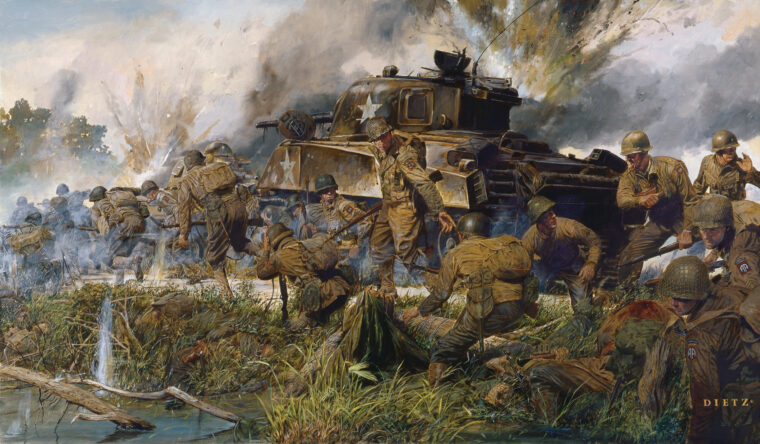
European Theater
Airborne at La Fière: Slugfest in Normandy
By Flint WhitlockThe night of June 5, 1944, and the morning of June 6 were without a doubt some of the most pivotal hours in the history of the 20th century. Read more
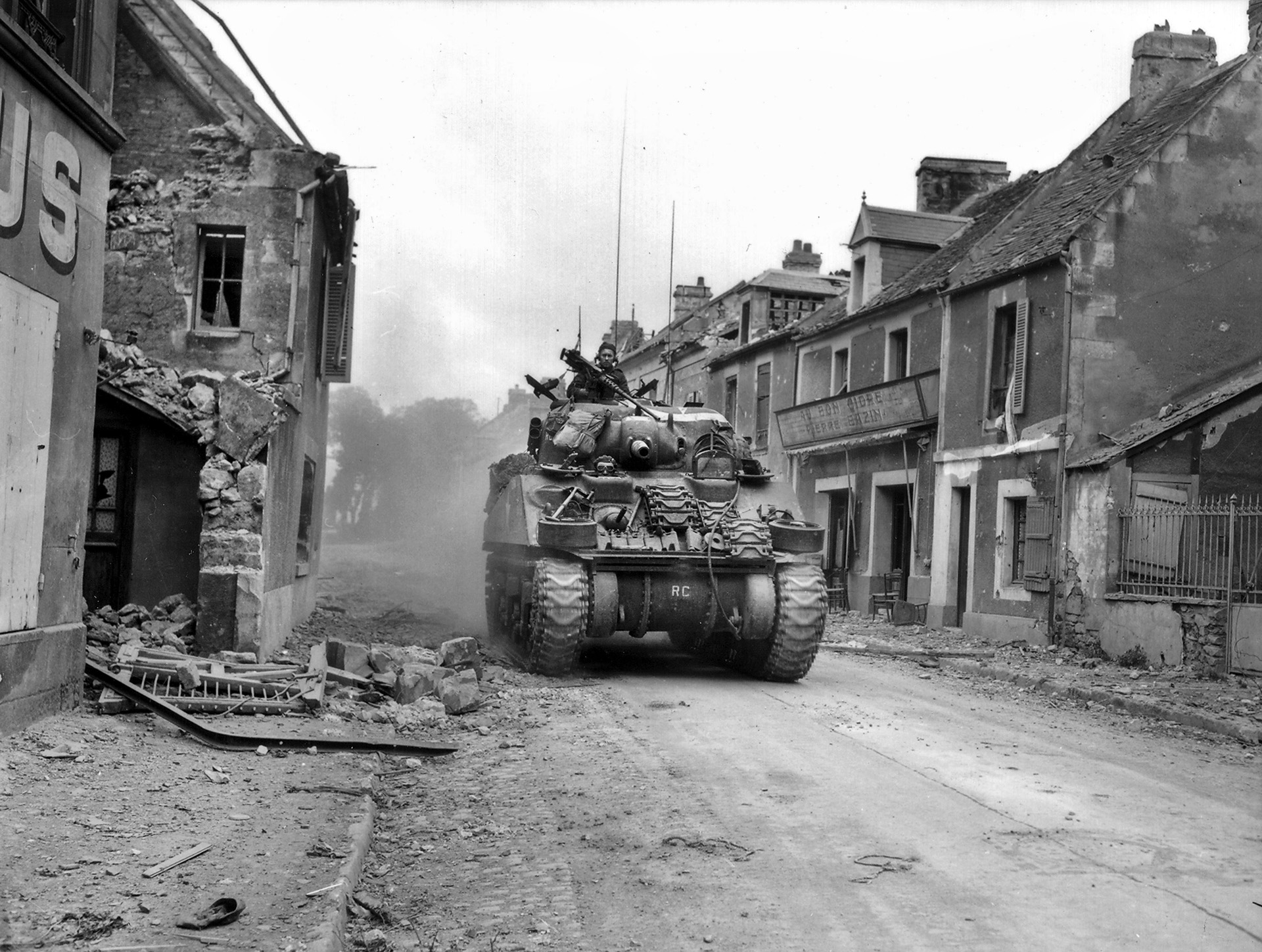
The European Theater of Operations (ETO) during World War II is generally regarded as the area of military confrontation between the Allied powers and Nazi Germany and Fascist Italy. The European Theater encompassed the Atlantic, Mediterranean, Eastern Front, Western Front, and Arctic areas of operation.

European Theater
The night of June 5, 1944, and the morning of June 6 were without a doubt some of the most pivotal hours in the history of the 20th century. Read more
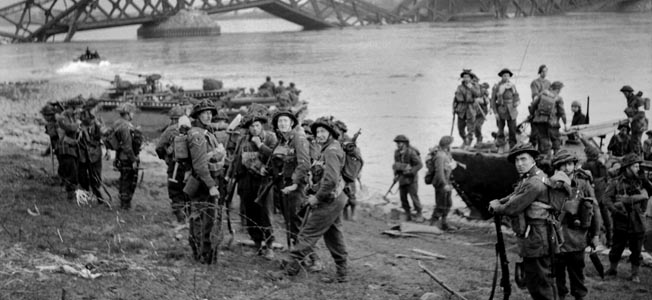
European Theater
The Commando role was born of the decision to mount vigorous raiding operations against occupied Europe as British forces were withdrawing from France in 1940. Read more
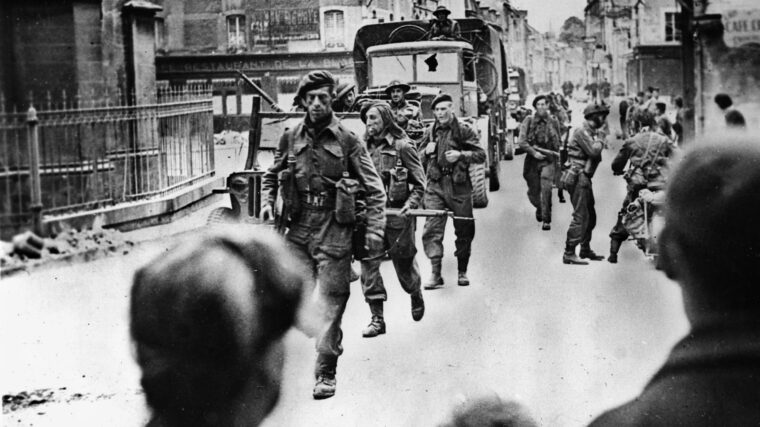
European Theater
“The big day came and we moved off to our positions. Shortly a huge bombing raid commenced on the town of Wesel, followed by an artillery barrage which virtually shook the very ground under us. Read more
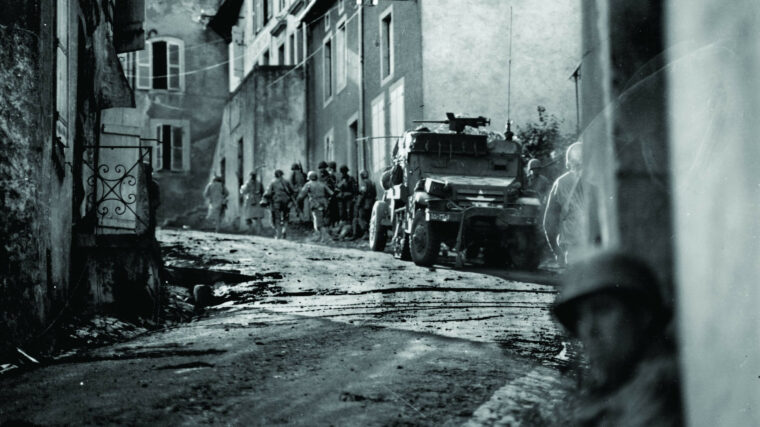
European Theater
By mid-September 1944, the U.S. Third Army was poised to strike at the soft underbelly of Adolf Hitler’s Third Reich along a fabled corridor in northeastern France used for centuries by armies tramping across Europe. Read more

European Theater
The American Infantry’s illustrious history, which is older than that of the country, comes alive in an impressive, $100,000,000, 190,000-square-foot museum located just outside Fort Benning, Georgia. Read more
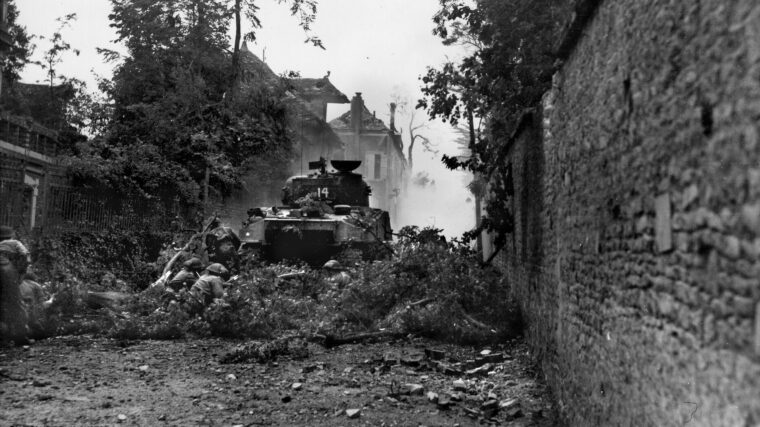
European Theater
On June 7, 1944, D+1, two volunteer Canadian 3rd Division, 9th Infantry Brigade regiments, the North Nova Scotia Highlanders (the North Novas) and the 27th Canadian Armoured Regiment (the Sherbrooke Fusiliers)—together with volunteer units from the Camerons of Ottawa and Forward Observers from the 14th Field Regiment—fought an important but now generally forgotten battle in Normandy. Read more
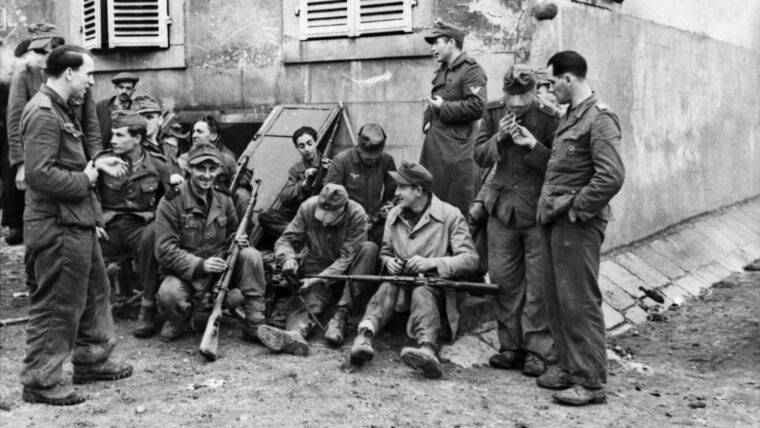
European Theater
Lieutenant General George S. Patton, Jr., the commander of the newly constituted U.S. Third Army, had one simple order that late summer of 1944: “Go east and go like Hell.” Read more
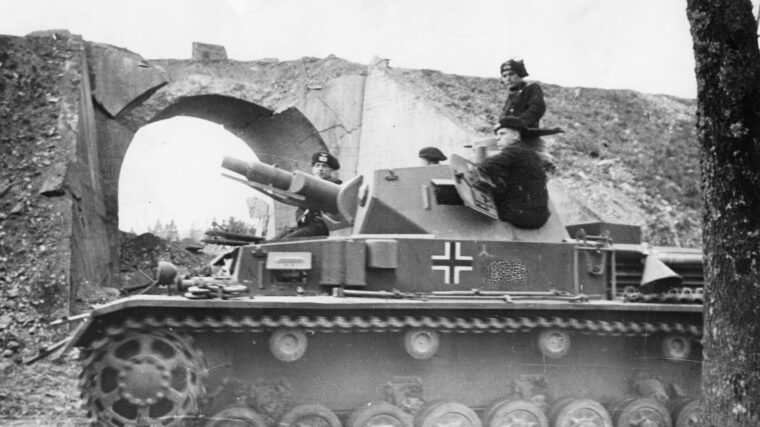
European Theater
On May 9, 1940, a black Mercedes automobile drove inconspicuously away from the Reich Chancellery in Berlin and merged with the weekend traffic. Read more
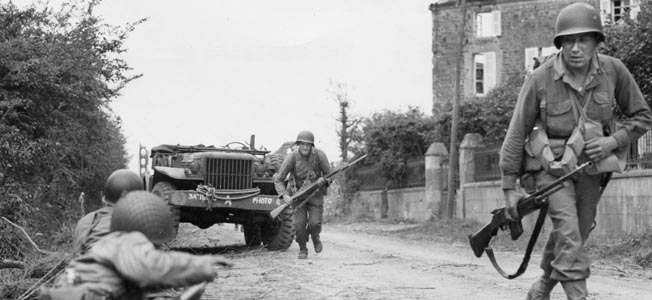
European Theater
The German sniper scanned the battlefield outside his bunker on the outskirts of the port city of Brest, on France’s Brittany peninsula. Read more
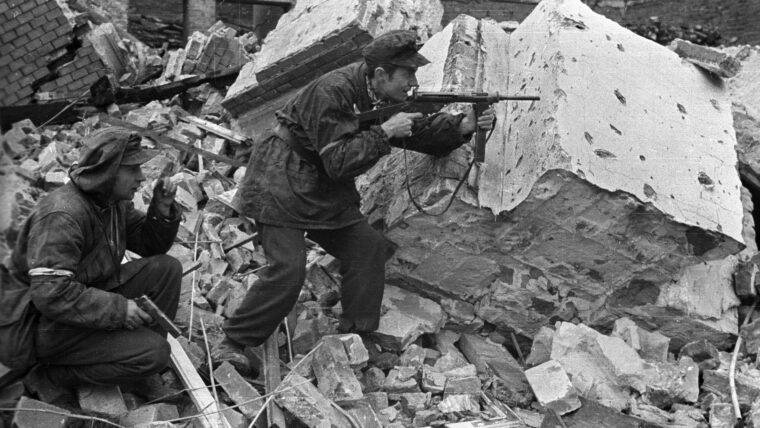
European Theater
“This mission is suicidal,” thought Bogdan Mieczkowski. In the autumn of 1944, the 19-year-old Polish resistance fighter battled in the Warsaw Uprising. Read more
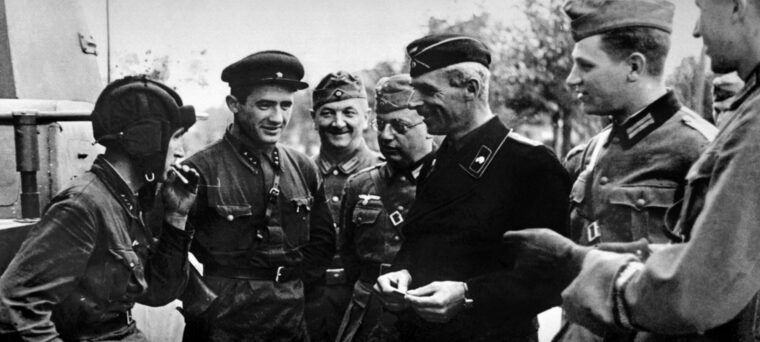
European Theater
On August 23, 1939, Soviet Deputy Minister of Foreign Affairs, V.P. Potemkin, waited at the Moscow Airport for Joachim von Ribbentrop, Foreign Minister of Nazi Germany. Read more
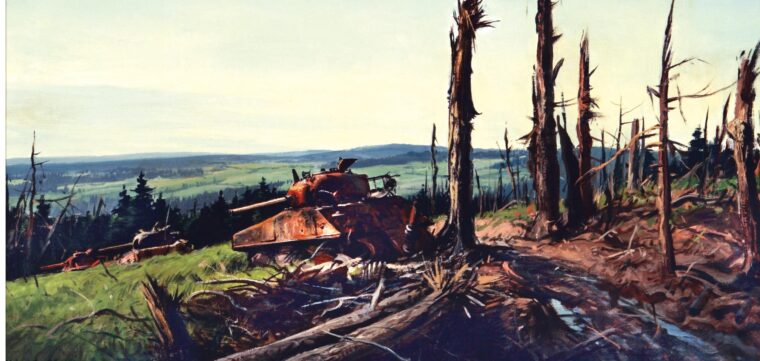
European Theater
On Sunday, September 10, 1944, all bridges over the German-Belgian border rivers, the Our and the Saur, were dynamited. Read more
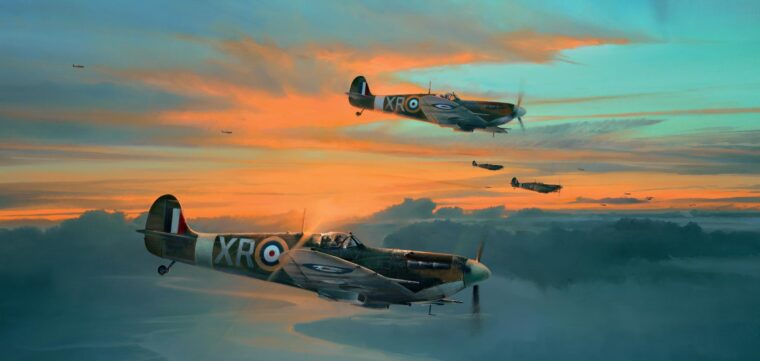
European Theater
All the pilots of No. 71 (Eagle) Squadron, Royal Air Force, had been ordered to report to the briefing room on the afternoon of August 18, 1942. Read more
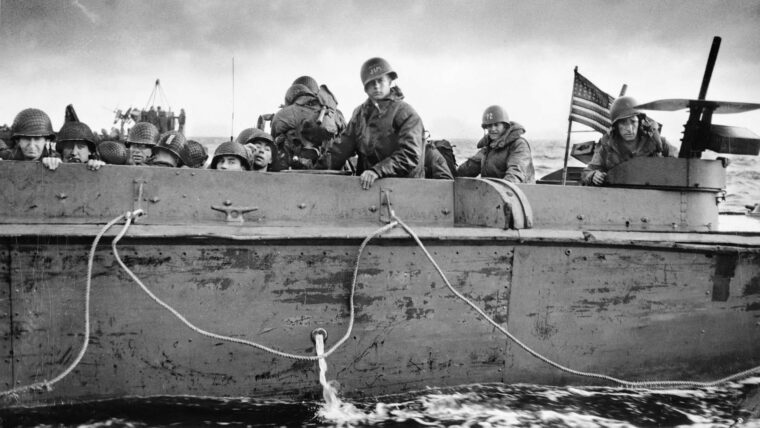
European Theater
The Landing Craft Mechanized (LCM) carrying Army engineers and Navy beachmasters hit a mine on its way into Omaha Beach. Read more
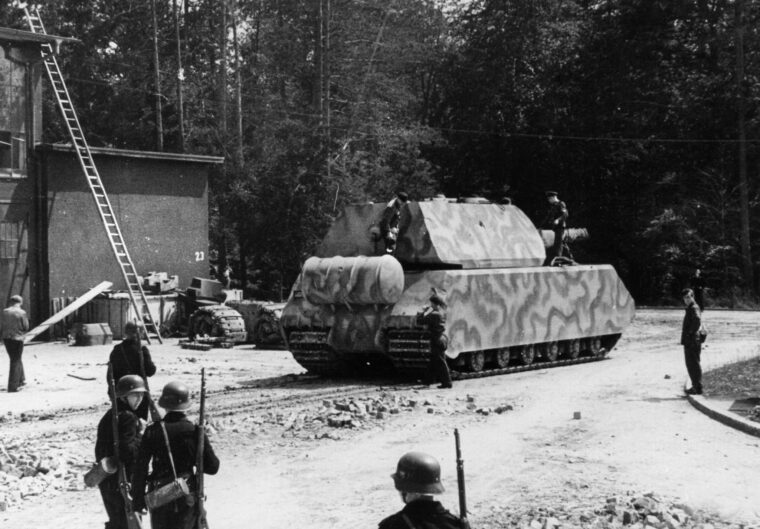
European Theater
As early as 1941, the German high command had visions of military technology that was far ahead of its time, and many innovative technological concepts were becoming reality. Read more
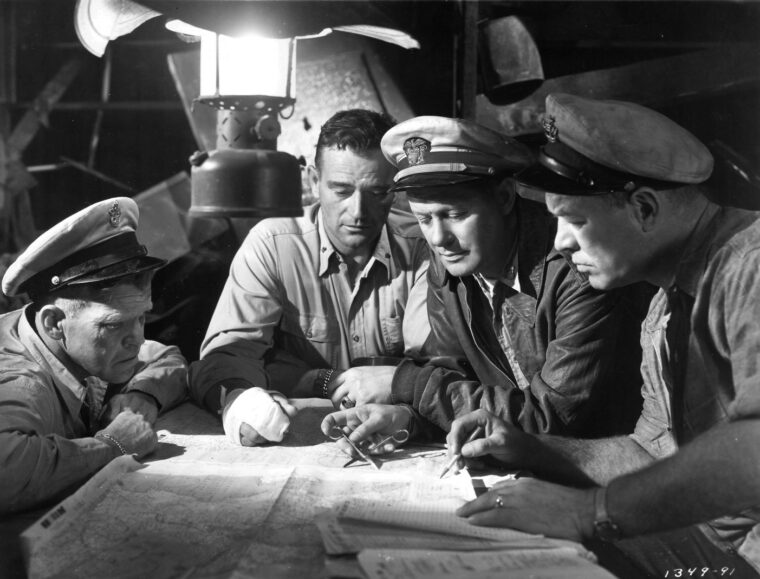
European Theater
With such award-winning films as Stagecoach, Young Mr. Lincoln, Drums Along the Mohawk, The Grapes of Wrath, The Long Voyage Home, and How Green Was My Valley behind him, John Ford was one of Hollywood’s most respected directors by the time World War II broke out in 1939. Read more
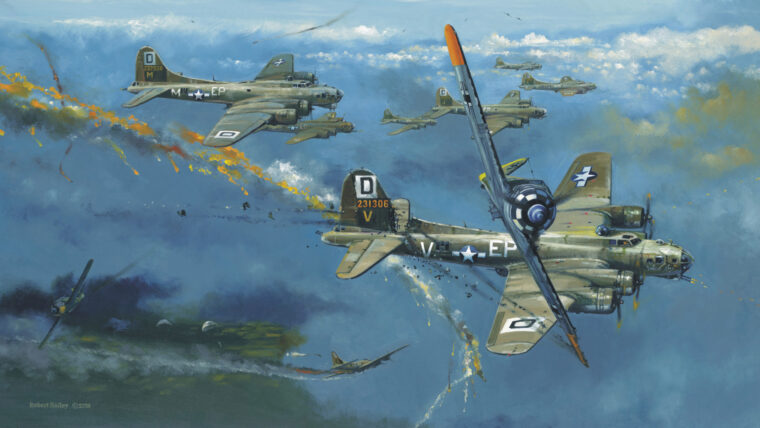
European Theater
The Nelson King, a Boeing B-17 Flying Fortress bomber, was en route to Berlin on March 6, 1944, when it flew into a whirlwind of Luftwaffe fighters. Read more
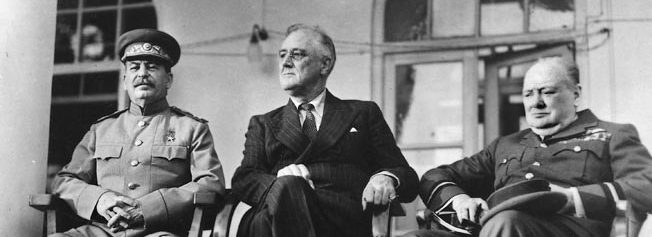
European Theater
World War II made a disparate trio of allies —British Prime Minister Winston Churchill, Soviet Marshal Joseph Stalin, and American President Franklin D. Read more
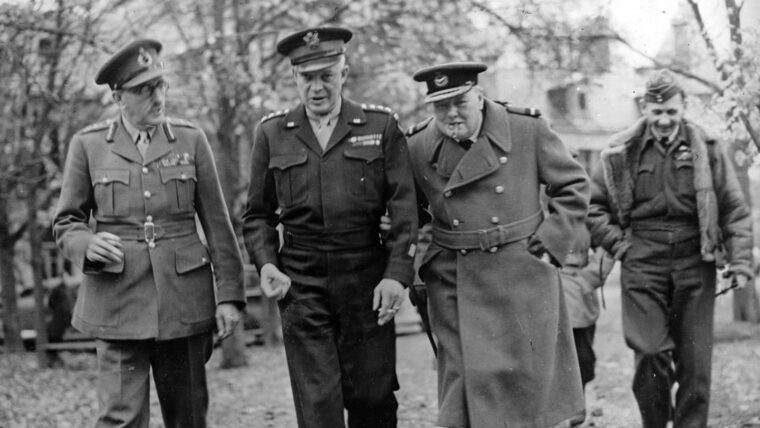
European Theater
British historian Alan Clark wrote in his book Barbarossa, “Roosevelt’s betrayal of Eastern Europe, whether out of calculation or gullibility, is so notorious as to need no further recapitulation.” Read more
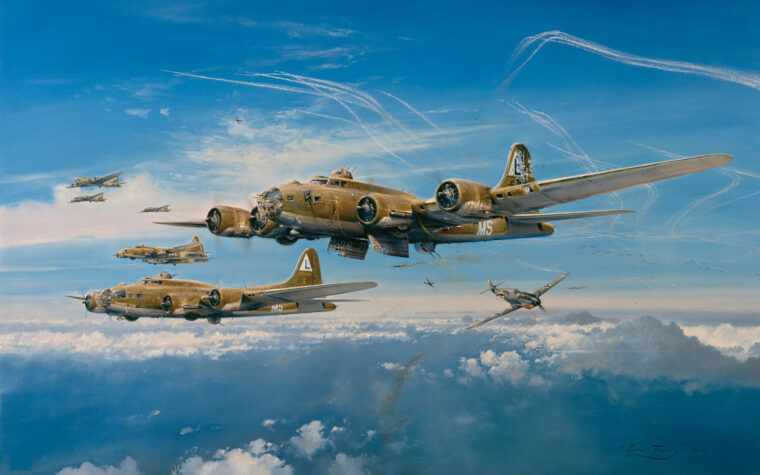
European Theater
For 33 months beginning in 1942, the U.S. Eighth Air Force and its precision daylight bombing strikes against German targets in Europe tried to pound the Third Reich into submission. Read more